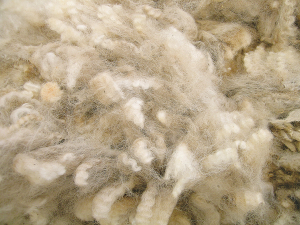Bremworth reintroduces solution-dyed nylon while backing wool carpets
Carpet maker Bremworth is reinstating solution-dyed nylon (SDN) into its product mix but says wool carpets remain central to its brand.
 The Bremworth Wool in Education Initiative has launched following reports schools were unhappy with the Ministry of Education’s Nga iti Kahurangi proposal.
The Bremworth Wool in Education Initiative has launched following reports schools were unhappy with the Ministry of Education’s Nga iti Kahurangi proposal.
Thousands of students could benefit from a new initiative designed to simplify schools’ access to New Zealand wool carpets for their classrooms.
The move follows the plan from the Ministry of Education to install almost $8 million worth of nylon carpet (made from petroleum-derived plastic) in up to 760 small or rural schools around the country.
The Bremworth Wool in Education Initiative has launched following reports schools were unhappy with the Ministry’s Nga iti Kahurangi proposal and were instead turning to community fundraising to pay for woollen carpet – rather than accepting the free synthetic alternative.
Under the programme, schools that are due to replace their existing flooring can apply to manufacturer Bremworth for a product subsidy equivalent to at least 30% of their flooring needs to help make wool carpet more accessible to New Zealand schools.
For a school requiring 400sqm of carpet, this would equate to savings of over $10,000.
Cheryl Barbara, principal of Rotherham School in North Canterbury, says the Ministry of Education’s offer to provide synthetic carpet is inconsistent with the sustainability doctrine the Government wants taught to students and is insulting to the rural sector.
“We are told to teach the kids about sustainability, yet the government isn’t actually practising what they preach,” Barbara says.
“It’s beyond belief that they are stipulating imported synthetic carpets in rural schools when we are a wool-producing nation – particularly as larger urban schools have the option to install carpets of their choice,” she says.
“As a principal of a rural school, I can tell you that it goes against our rural values and is highly offensive to our wider farming community which has been struggling over the past few years.
“Rural schools are about supporting their local community. I don’t think there would be any rural school in New Zealand that would want to be using plastic carpet, to be honest,” she says.
“It is heartwarming to see a local company like Bremworth offering to do what they can to help get wool back into schools,” Barbara adds.
Greg Smith, chief executive of Bremworth, says the decision to use petrochemical-based carpet fibres flies in the face of the Government’s commitment to reduce the amount of plastic in our lives.
He says it’s ironic that Bremworth has won export contracts in Australia which specified wool carpets in schools and yet historically, there has been less support for the product in the New Zealand education sector.
“New Zealand wool carpet has a history of performing for decades in Australasian schools prior to the introduction of imported synthetic alternatives,” says Smith.
“Unlike most other commercial settings, what we know about schools is that the students tend to spend a lot of time sitting on the floor.
“We believe in creating the optimal environment for learning and their comfort is a significant part of this.”
 |
|---|
|
Bremworth chief executive Greg Smith. |
Smith says Bremworth is doing what it can to help small Kiwi schools like Rotherham School to access NZ wool.
“This then provides a more natural, healthy environment for our children to thrive.
“What is needed now is for the Ministry to amend their current offer to allow schools to take the cash equivalent of the plastic tiles, which they can then put towards wool carpet,” he says.
Hadleigh Smith, market development manager at The New Zealand Merino Company (NZM) says many of its growers are disillusioned by the Ministry’s decision and frustrated at lacklustre explanations after the programme was publicised.
“It’s no secret that wool growers are struggling and this decision hit close to home. They don’t want their kids sitting on plastic when they could just as easily be sitting on fibre grown in their own backyard.
“NZM is built on creating deep relationships between brands and the growers who supply them and we’re thrilled to see that play out with Bremworth backing its growers and coming up with a solution,” he says.
Schools wanting to apply for the product subsidy can contact Bremworth: https://bremworth.co.nz/pages/wool-in-education-initiative
Global trade has been thrown into another bout of uncertainty following the overnight ruling by US Supreme Court, striking down President Donald Trump's decision to impose additional tariffs on trading partners.
Controls on the movement of fruit and vegetables in the Auckland suburb of Mt Roskill have been lifted.
Fonterra farmer shareholders and unit holders are in line for another payment in April.
Farmers are being encouraged to take a closer look at the refrigerants running inside their on-farm systems, as international and domestic pressure continues to build on high global warming potential (GWP) 400-series refrigerants.
As expected, Fonterra has lifted its 2025-26 forecast farmgate milk price mid-point to $9.50/kgMS.
Bovonic says a return on investment study has found its automated mastitis detection technology, QuadSense, is delivering financial, labour, and animal-health benefits on New Zealand dairy farms worth an estimated $29,547 per season.

OPINION: Here w go: the election date is set for November 7 and the politicians are out of the gate…
OPINION: ECan data was released a few days ago showing Canterbury farmers have made “giant strides on environmental performance”.